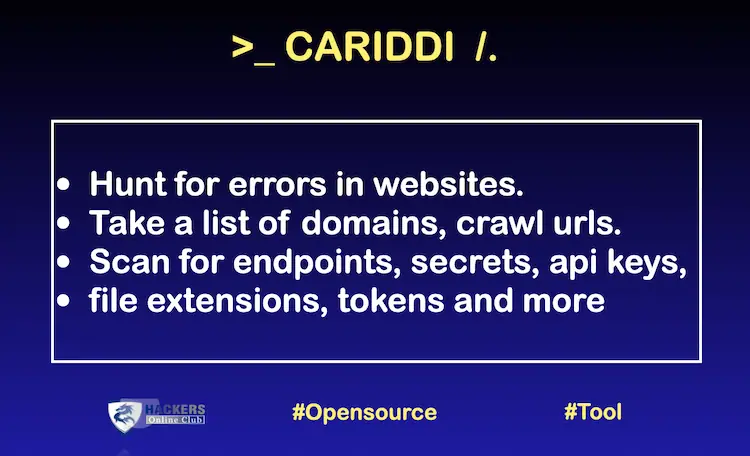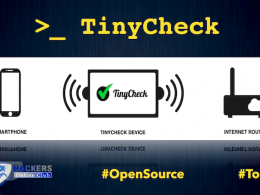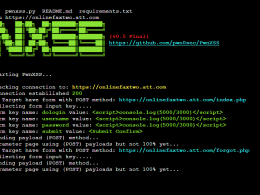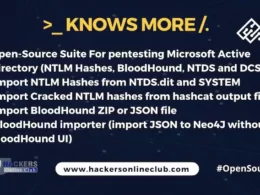Cariddi is an open source software to crawl domain URLs and scan for endpoints, secrets, API keys, file extensions, and tokens.
Installation
Using Snap
sudo snap install cariddi
Using Go
go install -v github.com/edoardottt/cariddi/cmd/cariddi@latest
Building from source
You need Go.
Linux
git clone https://github.com/edoardottt/cariddi.git cd cariddi go get ./... make linux (to install) make unlinux (to uninstall) Or in one line: git clone https://github.com/edoardottt/cariddi.git; cd cariddi; go get; make linux
Windows (executable works only in cariddi folder.)
git clone https://github.com/edoardottt/cariddi.git cd cariddi go get ./... .\make.bat windows (to install) .\make.bat unwindows (to uninstall)
Get Started

cariddi -h prints the help.
Usage of cariddi:
- -c int
Concurrency level. (default 20) - -cache
Use the .cariddi_cache folder as cache. - -d int
Delay between a page crawled and another. - -debug
Print debug information while crawling. - -e Hunt for juicy endpoints.
- -ef string
Use an external file (txt, one per line) to use custom parameters for endpoints hunting. - -err
Hunt for errors in websites. - -examples
Print the examples. - -ext int
Hunt for juicy file extensions. Integer from 1(juicy) to 7(not juicy). - -h Print the help.
- -headers string
Use custom headers for each request E.g. -headers “Cookie: auth=yes;;Client: type=2”. - -headersfile string
Read from an external file custom headers (same format of headers flag). - -json
Print the output as JSON in stdout. - -i string
Ignore the URL containing at least one of the elements of this array. - -info
Hunt for useful informations in websites. - -intensive
Crawl searching for resources matching 2nd level domain. - -it string
Ignore the URL containing at least one of the lines of this file. - -oh string
Write the output into an HTML file. - -ot string
Write the output into a TXT file. - -plain
Print only the results. - -proxy string
Set a Proxy to be used (http and socks5 supported). - -rua
Use a random browser user agent on every request. - -s Hunt for secrets.
- -sf string
Use an external file (txt, one per line) to use custom regexes for secrets hunting. - -sr
Store HTTP responses. - -t int
Set timeout for the requests. (default 10) - -ua string
Use a custom User Agent. - -version
Print the version.
Examples
- cariddi -version (Print the version)
- cariddi -h (Print the help)
- cariddi -examples (Print the examples)
- cat urls | cariddi -s (Hunt for secrets)
- cat urls | cariddi -d 2 (2 seconds between a page crawled and another)
- cat urls | cariddi -c 200 (Set the concurrency level to 200)
- cat urls | cariddi -e (Hunt for juicy endpoints)
- cat urls | cariddi -plain (Print only results)
- cat urls | cariddi -ot target_name (Results in txt file)
- cat urls | cariddi -oh target_name (Results in html file)
- cat urls | cariddi -ext 2 (Hunt for juicy (level 2 out of 7) files)
- cat urls | cariddi -e -ef endpoints_file (Hunt for custom endpoints)
- cat urls | cariddi -s -sf secrets_file (Hunt for custom secrets)
- cat urls | cariddi -i forum,blog,community,open (Ignore urls containing these words)
- cat urls | cariddi -it ignore_file (Ignore urls containing at least one line in the input file)
- cat urls | cariddi -cache (Use the .cariddi_cache folder as cache)
- cat urls | cariddi -t 5 (Set the timeout for the requests)
- cat urls | cariddi -intensive (Crawl searching also subdomains, same as *.target.com)
- cat urls | cariddi -rua (Use a random browser user agent on every request)
- cat urls | cariddi -proxy http://127.0.0.1:8080 (Set a Proxy, http and socks5 supported)
- cat urls | cariddi -headers “Cookie: auth=admin;type=2;; X-Custom: customHeader”
- cat urls | cariddi -headersfile headers.txt (Read from an external file custom headers)
- cat urls | cariddi -err (Hunt for errors in websites)
- cat urls | cariddi -info (Hunt for useful informations in websites)
- cat urls | cariddi -debug (Print debug information while crawling)
- cat urls | cariddi -ua “Custom User Agent” (Use a custom User Agent)
- cat urls | cariddi -json (Print the output as JSON in stdout)
- cat urls | cariddi -sr (Store HTTP responses)
For Windows:
use powershell.exe -Command "cat urls | .\cariddi.exe" inside the Command prompt or just cat urls | cariddi.exe using PowerShell
To integrate cariddi with Burpsuite make sure to follow these steps.
Normally you use Burpsuite within your browser, so you just have to trust the burpsuite’s certificate in the browser and you’re done.
In order to use cariddi with the BurpSuite proxy you should do some steps further.
If you try to use cariddi with the option -proxy http://127.0.0.1:8080 you will find this error in the burpsuite error log section: Received fatal alert: bad_certificate (or something similar related to the certificate).
To make cariddi working fine with Burpsuite you have also to trust the certificate within your entire pc, not just only the browser.
These are the steps you have to follow:
- Go to Proxy tab in Bupsuite, then Options. Click on the CA Certificate button and export Certificate in DER format
- openssl x509 -in burp.der -inform DER -out burp.pem -outform PEM
- sudo chown root:root burp.pem
- sudo chmod 644 burp.pem
- sudo cp burp.pem /usr/local/share/ca-certificates/
- sudo c_rehash
- cd /etc/ssl/certs/
- sudo ln -s /usr/local/share/ca-certificates/burp.pem
- sudo c_rehash .
After these steps, in order to use cariddi with Burpsuite you have to:
- Open Burpsuite, making sure that the proxy is listening.
- Use cariddi with the flag -proxy http://127.0.0.1:8080.
You will see that requests and responses will be logged in Burpsuite.











